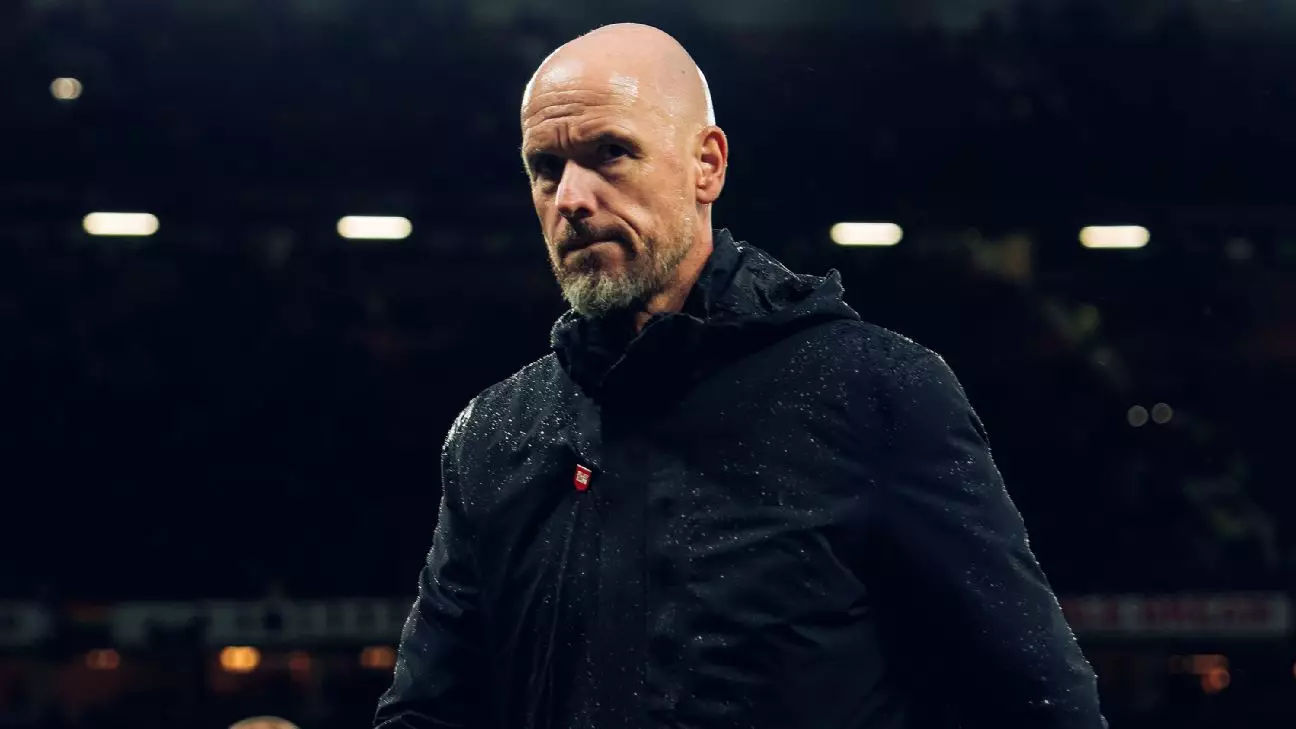The burden of history weighs heavily on Manchester United, a club built on the pillars of success and greatness. As Erik ten Hag steps into his second season as manager, the promise of revitalization has quickly faded into a swirling fog of uncertainty and disappointment. A disheartening home defeat to Tottenham Hotspur, resulting in a scoreline of 3-0, signals that excuses are quickly running thin, not only for him but for a team that now sits languidly in the mid-table. How did it come to this, and what does the future hold for the Dutchman at Old Trafford?
Ten Hag often seeks to deflect criticism by highlighting key moments in matches, notably the red card shown to captain Bruno Fernandes during the bout against Spurs. While it’s true that events like a red card can shift the momentum, reliance on such singular moments does little to obscure the broader picture depicted by performance statistics. Before the sending-off, Tottenham had assertions of dominance, outclassing United in possession (60.4% to 39.6%), passing efficiency (260 to 172), and overall attacking intent (12 shots versus United’s 3). Even a moment of misfortune for Spurs, with a hit on the post, betrays an unsettling reality: United’s failings extend far beyond isolated incidents.
It is increasingly clear that Ten Hag’s selective memory is becoming a pattern. He frequently cites injuries as a barrier to success, yet all teams face challenges throughout a season. Pointing at his two trophy wins during his tenure might have once consoled fans, but such arguments ring hollow when weighed against the backdrop of the club’s historically poor performance during the previous season, including an unthinkable 7-0 defeat against Liverpool.
The financial outlay present under Ten Hag’s stewardship has set expectations sky-high. With an expenditure exceeding £550 million on transfers, including marquee signings like Antony, Rasmus Højlund, and Mason Mount, the pressures associated with such investments are significant. No longer can Ten Hag claim that he lacks resources; the likes of Chelsea, albeit with a higher spending spree, are the only club overshadowing United’s expenditure in recent times.
As a club steeped in tradition and ambition, the glimmer of success appears to be moving further away, creating doubt not just among fans, but also among the club’s hierarchy. Recent performances indicate that Ten Hag’s project is faltering. The blend of new signings and youth integration should ideally foster a cohesive unit; instead, the team often appears disconnected, lacking the chemistry and understanding that modern football demands.
As the specter of other burgeoning managers looms large, Ten Hag’s missteps become glaring. Managers such as Unai Emery at Aston Villa and Ange Postecoglou at Tottenham have crafted methodologies leading to immediate success. Taking command of a struggling team is no simple task, yet Emery’s transformation of Villa from a relegation candidate to a Champions League contender illustrates the stark contrast in trajectories.
Postecoglou, facing the daunting task of navigating Spurs post-Harry Kane’s departure, has not only maintained but revitalized their performance. Similarly, both Enzo Maresca at Chelsea and Arne Slot at Liverpool have made their marks with noticeable impact. The takeaway is clear: effective leadership can, in fact, yield swift results, while Ten Hag’s results continue to undermine his position.
Rumors swirl about a potential managerial change, with club leadership feeling the weight of poor performances. United’s director of sport, Dave Brailsford, alongside minority owner Jim Ratcliffe and new executives like CEO Omar Berrada, have so far supported Ten Hag, but a string of poor results, especially leading into crucial matches against FC Porto and Aston Villa, may test that patience.
The imminent possibility of a change speaks to the urgency underpinning the club’s situation. Time is not on Ten Hag’s side, especially as the gap to Champions League qualification widens.
Erik ten Hag’s future at Manchester United hangs by a thread, tethered to the flimsy hope of turnaround results. While the foundations of his managerial prowess may still exist, the realities of performance and expectation shadow him heavily. United is no longer a side that can afford to simply hope for brighter days; they require proven results. If Ten Hag remains unable to align his vision with the realities of the Premier League, he may find that the boat he believes to be steady is, in fact, capsizing. The time for excuses has expired, and the time for results has arrived.

Leave a Reply